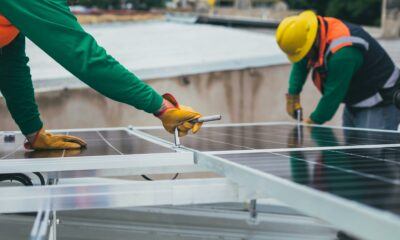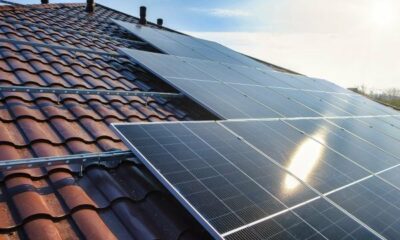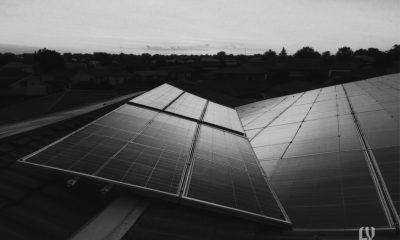Business
OUTA Urges South Africans to Hold Off on Eskom Rooftop Solar Registration

If you’ve recently installed rooftop solar or a home battery system and you’re wondering whether to register it with Eskom, the Organisation Undoing Tax Abuse (OUTA) says you might want to wait.
Following a meeting with Eskom Distribution management on 8 August 2025, OUTA has urged South African households and businesses not to proceed with registration until the power utility clears up what it calls “significant uncertainty” around the process.
Too many questions, not enough clarity
At the heart of the issue are the registration and compliance requirements for small-scale embedded generation (SSEG) systems; that’s the official term for low-voltage solar photovoltaic (PV) and battery energy storage (BES) setups in homes and businesses.
OUTA says Eskom’s current process is restrictive, costly, and still unclear on critical points. These include tariffs, national standards, and whether systems that don’t feed power back into the grid really need the same level of paperwork as those that do.
Wayne Duvenage, OUTA’s CEO, says the organisation has been inundated with queries from the public. “We believe the public should not register at this stage,” he explains. “There are many things Eskom still has to clear up, and they have to provide greater clarity going forward.”
Who is affected?
The concerns apply to:
-
Prepaid customers on Homelight tariffs.
-
Postpaid customers on Homepower tariffs.
-
Homeflex time-of-use customers with solar PV and/or BES that do not export electricity to Eskom’s grid.
According to OUTA, the current requirements unfairly burden households and small businesses that have invested in reducing their reliance on the national grid, often at significant personal cost.
The legal and technical debate
OUTA argues that Eskom’s insistence on certain professional sign-offs for residential systems may be overstepping its authority. In its view, once the amendments to the SABS Code of Practice for Low Voltage Electrical Installations come into effect, the existing framework, including the Occupational Health and Safety Act, the Electrical Installation Regulations, and SANS 10142-1, will already cover all necessary safety and compliance checks.
Instead of requiring approval from an engineer registered with the Engineering Council of South Africa, OUTA says a valid Certificate of Compliance from a registered electrical contractor should be enough.
Eskom says registration for grid-tied systems remains compulsory, and fees are waived for most residential customers until March 2026.
What happens next?
Eskom’s representatives have agreed to review the issues raised and respond to OUTA’s submissions. Meanwhile, OUTA plans to continue its discussions with the Department of Employment and Labour, the National Energy Regulator, and the SABS working group responsible for SANS 10142-1.
Until those talks produce clear and rational rules, OUTA’s advice is simple: if your system is small scale and behind the meter, hold off on registering it with Eskom or your municipality.
Also read: Eskom Diesel Winter Cost: R6 Billion Kept Lights On
Follow Joburg ETC on Facebook, Twitter, TikTok and Instagram
For more News in Johannesburg, visit joburgetc.com
Source: Business Tech
Featured Image: Green Integrations

























